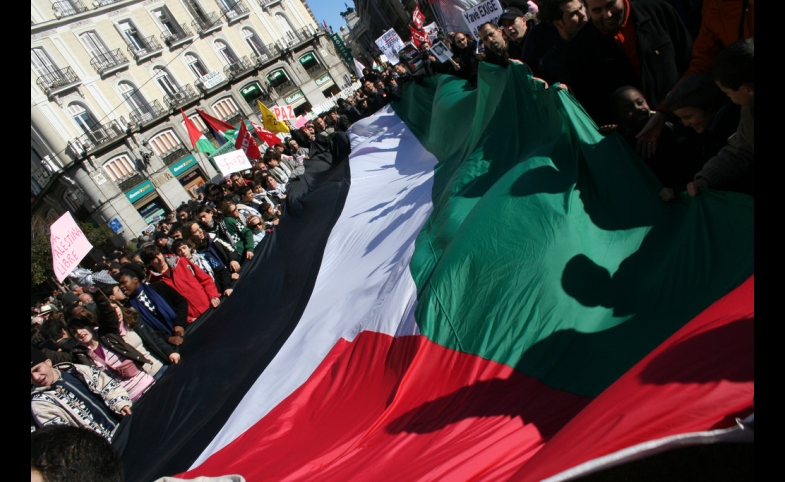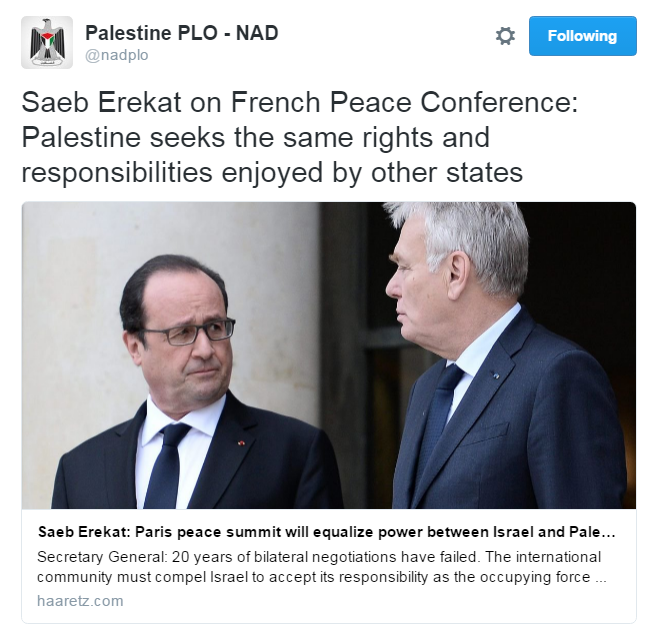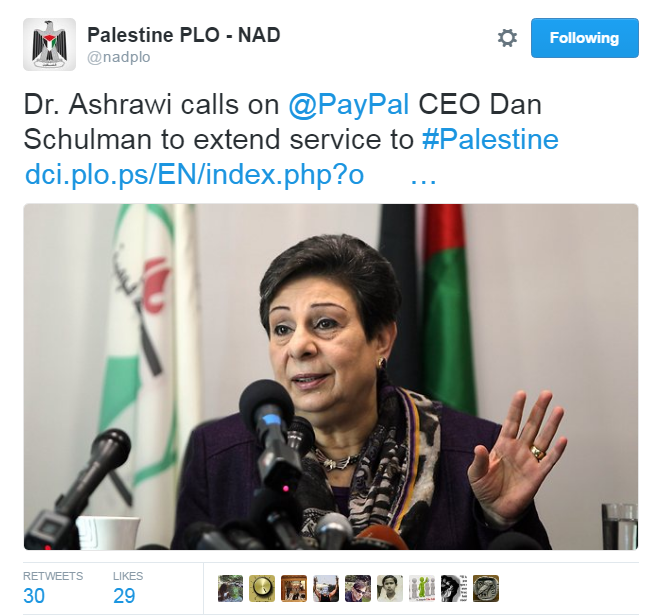Introducing the Digital Diplomacy Bibliography Digital social media technologies have become part of people’s everyday life. They also have an impact on diplomatic practice and the way governments engage foreign publics...
KEEP READINGThe CPD Blog is intended to stimulate dialog among scholars and practitioners from around the world in the public diplomacy sphere. The opinions represented here are the authors' own and do not necessarily reflect CPD's views. For blogger guidelines, click here.

Evaluating Palestine's Digital Diplomacy
From a diplomatic perspective, Palestine represents a puzzling case study. On the one hand, Palestine has been recognized as an independent state by the UN General Assembly. On the other hand, it is not a full member state of the UN. Additionally, in some countries one may find a Palestinian embassy while in others one may only find a Palestinian Office of Interests. The level of representation differs as some countries recognize Palestine as an independent state while others regard it a semi-autonomous entity. As such, Palestine exists in a state of diplomatic limbo.
The issue of Palestinians' diplomatic representation is also complex, as Palestinian diplomats do not necessarily represent Palestinian citizens. For instance, Palestine is represented in the U.S. by a Palestine Liberation Organization mission. Yet the PLO does no govern the lives of Palestinians living under the rule of Hamas in the Gaza strip. Since Hamas and the PLO do not fully recognize one another's sovereignty, Palestine exists in a state of internal limbo as well.
The Presentation of Palestine Online
The complexities of Palestine's diplomatic standing have not prevented its diplomats from migrating online. Like most foreign ministries, the Palestinian ministry operates a plethora of social media accounts at both the embassy and national level. An evaluation of content published by these accounts suggests that the Palestinian digital diplomacy strategy focuses on three aspects: demonstrating international recognition of Palestinian sovereignty, seeking digital recognition and presenting Palestine as a "state in the making".
Demonstrating International Recognition
Many Palestinian embassies focus their efforts on demonstrating international recognition of Palestinian sovereignty. For instance, in the tweet below the PLO delegation to the U.S. informs followers that Algerian geography school books have been recalled, as they failed to label Palestine on maps. As such, the mission informs followers that Palestine does indeed exist as a sovereign state with internationally-recognized borders.

The Facebook post below, published by the Palestinian Embassy in Zimbabwe, also portrays Palestinian sovereignty by informing followers that the Palestinian flag shall soon be raised at the UN headquarters in New York. This again attests to the international recognition of Palestine as an independent state.

Additional content published online seems to portray Palestine as a state like any other. For instance, the tweet below includes a message of condolence from Palestine to the people of France following the terror attacks in Nice. Notably, the image included in the tweet begins with the words "State of Palestine". This tweet may be seen as an attempt to portray Palestine as an integral part of the international community, a state like any other that stands shoulder to shoulder with other countries in times of tragedy.

Lastly, Palestinian embassies also emphasize the fact that global powers now acknowledge Palestine's standing as an independent state. The tweet below, published by the PLO's negotiations bureau, suggests that France recognizes that Palestine has the same rights, and responsibilities, as Israel. Thus, this tweet portrays Palestine as Israel's equal rather than a quasi-state.

Seeking Digital Recognition
In addition to seeking offline recognition, Palestinian digital diplomacy focuses on obtaining digital recognition of Palestinian sovereignty. For instance, in the tweet below Palestinian officials demand that PayPal expand its services to Palestine. The accompanying image is important in its own right, as it depicts a Palestinian national leader sitting in front of the Palestinian national flag, thus demonstrating yet again Palestinian sovereignty.

Similarly, in the tweet below the PLO mission to the U.S. called on its followers to sign a petition demanding that Palestine be clearly labeled on Google Maps. At the moment, Google Maps only marks the borders of the West Bank and the Gaza Strip without labeling them under the name Palestine.

Palestine's embassy to Japan also took to Facebook to encourage followers to sign a petition demanding digital recognition of Palestine in Google Maps. The post (seen below) also includes an image taken from Google Maps that clearly labels Israel but not Palestine.

The Palestinian Embassy in Copenhagen took a different approach, by publishing a video containing historical maps that all recognized Palestine prior to the establishment of Israel. This video, seen below, asserts that Palestine has always been recognized offline and must now also be recognized online.

A State in the Making
The third aspect of Palestine's digital diplomacy strategy focuses on portraying Palestine as a state in the making, one that has created the institutions necessary for statehood. For instance, the Palestinian Embassy in Japan recently published a Facebook post informing followers of investment opportunities in Palestine. The information in the post was authored by the Palestinian Investment Promotion Agency, a national institution tasked with laying the financial foundations of the Palestinian state.

Conversely, the Palestinian embassy to Kuwait published a post notifying followers that the Palestinian Supreme Court has decided to halt preparations for the Palestinian municipal elections. The importance of the post arises from its mentioning of the Palestinian Supreme Court and Palestinian municipalities, thus demonstrating that Palestine has created the national institutions necessary for self-rule.

Lastly, an important component of Palestinian digital diplomacy is sports. Palestinian embassies throughout the world routinely highlight Palestinian sports achievements, such as winning an Olympic medal. Such content is important as it demonstrates that Palestine is indeed a state in the making, one that has a national soccer team, a national Olympic committee and a national Olympic team.



Conclusion
This post attempted to analyze Palestine's digital diplomacy strategy. At the moment, Palestinian embassies seem to employ social media in order to demonstrate international recognition of Palestinian sovereignty and portray Palestine as a State in the Making. Notably, Palestinian embassies also seem to advocate digital recognition of Palestine. At a time when states occupy both physical and cyber spaces, online recognition may be just as important as offline recognition.
Photo by Carlos Capote I CC 2.0
Visit CPD's Online Library
Explore CPD's vast online database featuring the latest books, articles, speeches and information on international organizations dedicated to public diplomacy.
POPULAR ARTICLES
-
January 29
-
January 20
-
January 28
-
January 2
-
January 8
Join the Conversation
Interested in contributing to the CPD Blog? We welcome your posts. Read our guidelines and find out how you can submit blogs and photo essays >.













